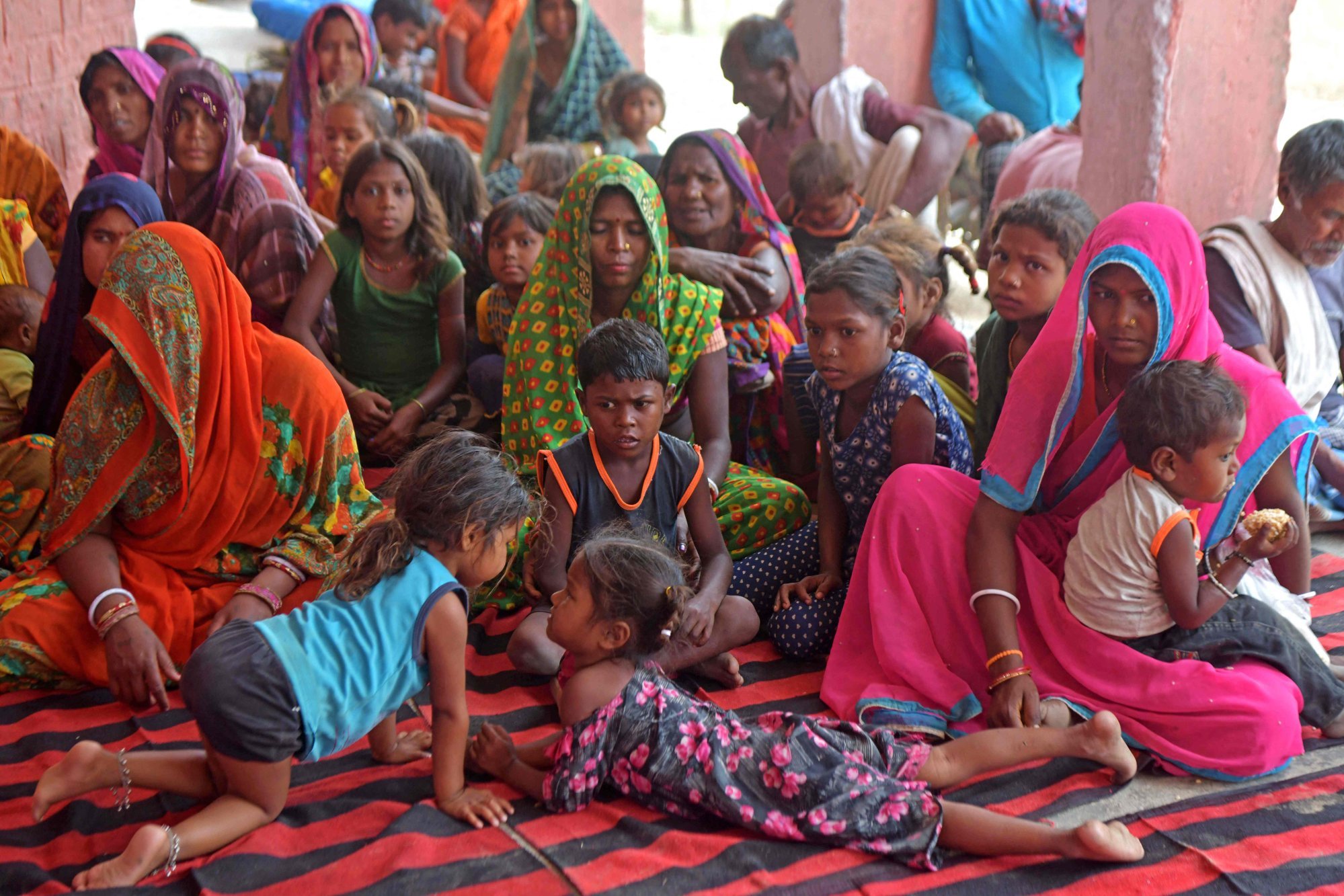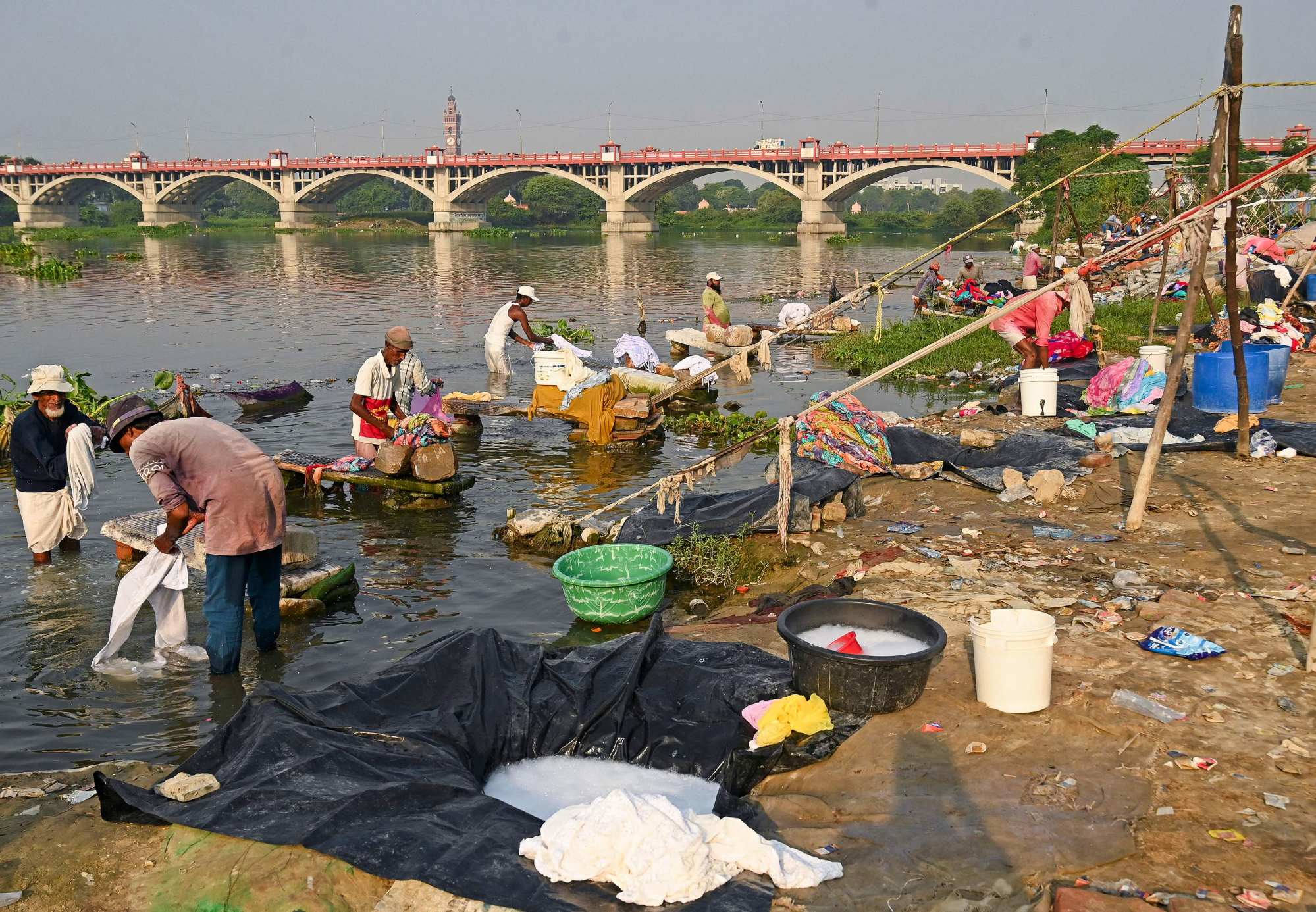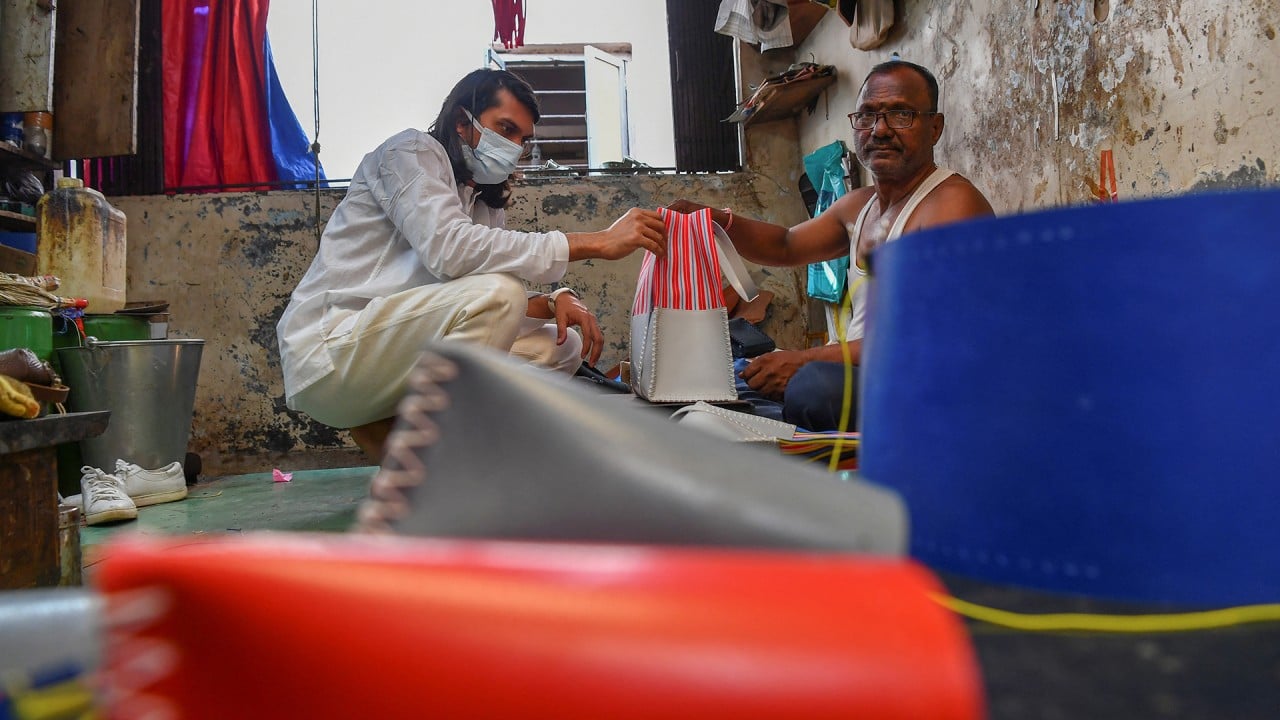But opposition parties, trying to ensure the BJP does not win a third time, are now eyeing calls for a national caste census as an opportunity to break Modi’s hold over OBCs and capitalise on the vast support they offer, analysts say.
Babanrao Taywade, national president of the Rashtriya OBC Mahasangh (The National OBC Federation), said the move for a national census was long overdue.
“We estimate that OBCs today constitute about 60 per cent of the country’s population,” Taywade said. “It is the demand of this 60 per cent to conduct a census, and give the OBCs their rightful share of [social and economic opportunities].”
Political analyst Sanjay Jha said the BJP had managed to secure OBC support by creating a united Hindu identity across the OBC castes and sub-castes, rather than let caste identities be highlighted.
Data from pollster Lokniti-CSDS showed the BJP won 44 per cent of the OBC vote in 2019, when Modi returned as prime minister, twice more than the 22 per cent in 2009. In 2014, the year the BJP came to power, it gained 34 per cent of OBC votes.
In the same period, the opposition Congress party went from having 24 per cent of OBC votes in 2009 to just 15 per cent in 2014 and 2019.

“The BJP has used the religious cocktail of ‘Hindutva’ as a binding factor,” said Jha, referring to the strident anti-Muslim rhetoric the party is known to adopt. “It has made people forget about the economic discrimination and the social hierarchies by trying to mislead large populations and turn them anti-minority.”
Jha, a former Congress spokesman, said the census could bring about much-needed change.
“When the census is carried out, it will highlight the need to talk about rightful jobs and development, rather than be swayed by Hindutva and issues of religious polarisation,” Jha said.
Badri Narayan, a political scientist and director of the G.B. Pant Social Science Institute in Prayagraj, agreed with the premise that such caste-based mobilisation could disrupt the BJP’s Hindutva agenda.
“The BJP’s Hindutva project will be threatened because once various caste groups get divided, creating a consolidated religious identity for them would be difficult,” said Narayan, who has written books documenting the BJP’s grip over OBCs.
India’s ‘untouchable’ women face rejection from schemes meant to help them
India’s ‘untouchable’ women face rejection from schemes meant to help them
However, Narayan is not confident of the opposition’s ability to create enough momentum on the issue, given the inroads the BJP and its allied Hindu-nationalist bodies such as the Rashtriya Swayamsevak Sangh (RSS) have made to get OBCs on their side.
In his book, Republic of Hindutva, Narayan detailed how RSS workers had reached out to people of the Kabutara caste – which he described as “one of the most marginalised small communities” – in a village in northern Uttar Pradesh.
The RSS workers told Narayan how they had conducted surveys across marginalised castes to find out their “desires”. In this case, the community wanted to construct a temple for their community deity, and the RSS workers helped them do so.
Such inroads, Narayan told This Week In Asia, were unlikely to be erased overnight. “I don’t think it will be easy for the opposition to sway OBC voters with this alone,” he said. “It will be difficult.”
But Jha believed the opposition would succeed in mobilising support by making the census its principal demand.
“This caste mobilisation will turn out to be a very powerful weapon for the coming polls because it holds the promise of bringing about social and economic change for these backward communities,” Jha said.
Opportunity or Pandora’s box?
Analysts are also mixed about the repercussions of creating caste-based movements.
Modi and the BJP have said such demands are only going to deepen caste fault-lines in an already deeply unequal society.
“The people of the country had given those opposing development 60 years. Sixty years is not a short time,” Modi said on October 2, the day Bihar released its survey results. “Then, they used to play with the feelings of the poor and they are doing it even now. They used to divide the country on the basis of caste then and are doing the same even now.”
Modi also attacked Congress, saying it was trying to “divide the Hindus of the country and destroy the nation”.
This Week In Asia reached out to the BJP for comment, but received no response.

Narayan, the political scientist, warned that the data could set off clashes between different castes among OBCs. In the western state of Maharashtra, where various marginalised castes such as the dominant Maratha community are asking for affirmative action, the tensions are clear.
“Within OBCs, the dominant caste groups have been asking for more affirmative action and hence, census data will help them cement the claim,” Narayan said.
Others point to the necessity of a census. India last conducted a nationwide caste census in 1931, when it was still a British colony – the findings then showed OBC communities to constitute just over half of the Indian population. Since then, the lack of caste data around OBCs has meant that affirmation action has remained static.
Under India’s constitutionally guaranteed affirmative-action programmes, marginalised communities, including scheduled castes and scheduled tribes collectively, are allocated a maximum of 50 per cent of government jobs and education places.
Indians in Seattle cheer ban on caste discrimination that oppresses Dalits
Indians in Seattle cheer ban on caste discrimination that oppresses Dalits
Given the results of the Bihar survey, which show OBCs to form the bulk of the state’s population, discussions are likely to erupt over re-engineering affirmative-action policies based on proportionality. Similar results are expected elsewhere, prompting other state governments to either push for a similar survey or contemplate doing so.
Opposition parties have called for more government jobs and places in educational institutions to be reserved for OBCs, and parliamentary seats for which only OBCs can contest.
Taywade, the OBC federation chief, said such proportionate benefits would correct “historical wrongs”.
“The truth is, a majority of Indians are backward, socially and economically, and they have not got equal opportunities to succeed … despite 76 years of India becoming independent,” he said. “Holding a census offers us an opportunity to correct it. The 60 per cent will finally get what is due to them.”


